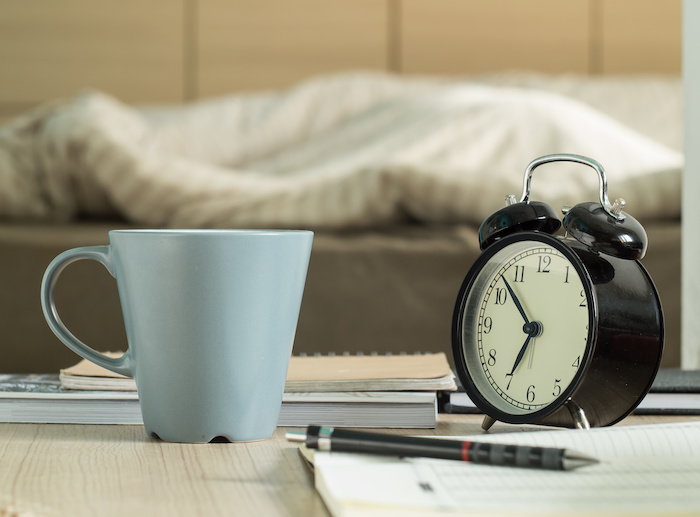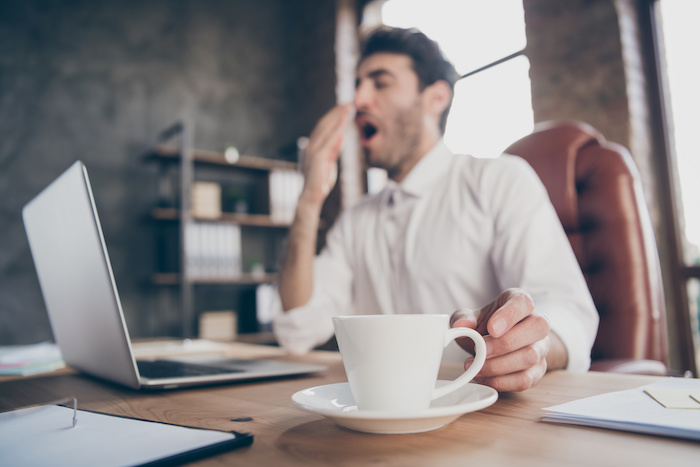It’s a common fear that caffeine is the enemy of sleep. In fact, we’ve all either said or heard someone say, if I have a cup of coffee right now, then I’ll be up all night. But why is this the case? Does caffeine really impact our sleep?
Let’s dive into a few helpful questions and answers regarding the relationship between caffeine and sleep.
Does the Time of Caffeine Consumption Impact Sleep?
Our brains and bodies need sleep in order to rest, recharge, and restore. When we sleep, important healing processes occur, long-term memories are stored, and we hopefully will wake up feeling refreshed and ready to begin a new day. One way we safeguard this important process is by eliminating things that impede good sleep. Things like caffeine.
Caffeine typically has up to a six-hour half-life, which means it can take up to 24-hours to completely work out of our system. If you have a cup of coffee at seven in the morning, you’ll probably only have 25% of the caffeine in your system by seven at night. If you have that same cup of coffee any time after noon, you’ll probably have 50% of the caffeine in your system when you go to bed. The amount of coffee and the time of day you consume it impacts how much—or how little—coffee will impact your sleep.
What Effect Does Caffeine Have on the Brain?
Maybe you’ve experienced it—the rush of the morning cup of coffee. Your alarm sounds and you know it’s time to turn on the coffee pot. All seems right in the world.
Many people drink caffeine first thing in the morning because it helps them feel more alert while also improving their mood. And this would even seem to be scientifically proven. According to a study on how caffeine affects attention span and alertness, caffeine can improve cognitive task performance (or tasks that rely on things like memory and attention span). There’s a reason people have historically appreciated their morning cup of Joe.
But according to a study conducted by Johns Hopkins Medicine, all may not be as it appears. In other words, the study shows that performance spikes that result from consuming caffeine are actually because of short-term caffeine withdrawal. Since caffeine is addictive, those of us who have trained ourselves to “need coffee in the morning” wake up experiencing classic withdrawal symptoms from a long night without it.
The researchers from Johns Hopkins Medicine further concluded that caffeine-based performance would actually be impossible without first experiencing caffeine withdrawal. This means that there’s nothing magical in the coffee itself. Coffee simply returns us to our normal state and baseline performance once the withdrawal symptoms have been met by a new dose of caffeine. And this feeling of normality will likely only last a short time. We’ll eventually want more.
So the good news?—We don’t actually need caffeine to function at our best. If it’s interfering with our sleep, we can learn to successfully live without it!
Why Are There Different Reactions to Drinking Coffee Before Bed?

But specific to coffee and caffeine, scientists have identified what they call a “caffeine gene” that seems to control a person’s response to caffeine. Basically, the caffeine gene decides how well and how quickly a person responds to caffeine.
Our bodies produce a substance called adenosine, which acts as a natural depressant. Among other things, it suppresses arousal and promotes sleep. The level of adenosine rises and falls throughout the day. People who have more adenosine in their genetic code are able to have a cup of coffee at any time of the day and overcome the powerful effects of caffeine easier than people with lower levels of adenosine.
So basically, the short answer: It’s genetic. If you can drink a cup a coffee before bed and then go straight to sleep, consider yourself one of the lucky few.
How Does Caffeine Impact Sleep?
Caffeine is the enemy of good rest.
When we consume caffeine, it reduces the quality of our REM (rapid eye movement) cycle. This is the time when our body processes emotions from the day and recuperates from the day’s experiences. When our REM cycle is disrupted, we often wake up the next morning feeling emotionally handicapped. And to compensate for how we feel, we reach for a cup of coffee to make us feel better.
The caffeine gives us the adrenaline rush we crave and the cycle continues. But information is power, and with the right information, we can break the cycle and get the sleep we deserve.
How Much Caffeine Is Too Much? What Is the Right Amount?
When it comes to how much—or how little—caffeine we should consume, the opinions are widely varied. The Mayo Clinic recommends sticking to a moderate amount and steering clear from having four cups of coffee a day. However, some studies encourage staying away from it entirely because even one cup of coffee can have a powerful effect on our brain and body.
According to the FDA, there is a healthy amount of caffeine that can be consumed without too many negative effects. According to the FDA’s website, “For healthy adults, the FDA has cited 400 milligrams a day—that’s about four or five cups of coffee—as an amount not generally associated with dangerous, negative effects.
But since every person processes and responds to caffeine in a different way, it’s a good idea to talk to your doctor about your personal limits. And then—if you think caffeine may be affecting your sleep—try cutting back to see if it makes a difference.
Want to Get Better Rest?
We want to help you get the best rest. If you’re struggling with continual sleep deprivation, rest assured that it can only get better from here. Try cutting back on caffeine and see if it helps. If not, hang in there. With the right tools and support, you can start getting your best rest.
Sleep goals here we come!





